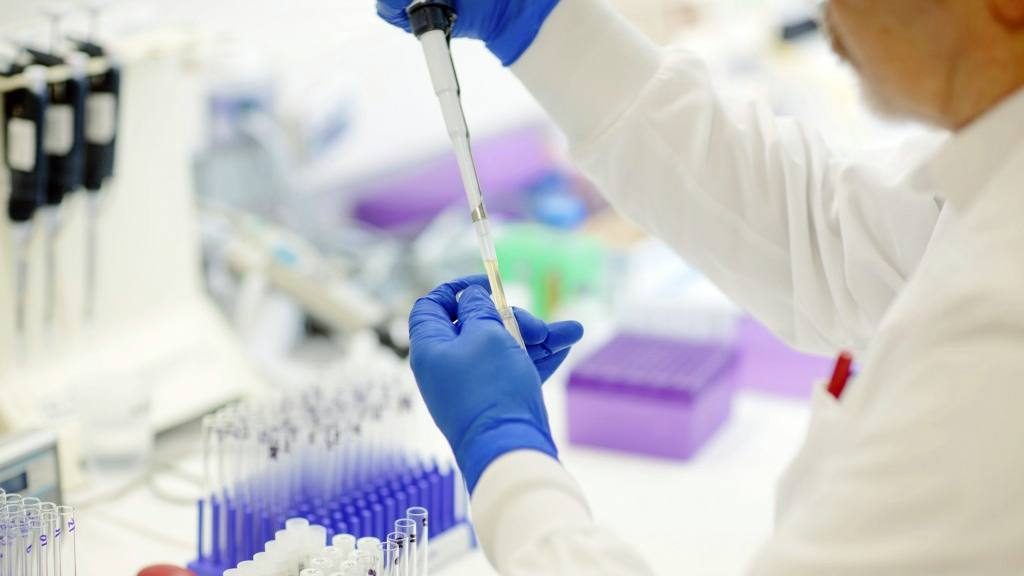
A team of researchers led by Mayo Clinic and the Translational Genomics Research Institute has identified specific potential therapeutic targets for the most aggressive and lethal form of pancreatic cancer.
In what is believed to be the most comprehensive analysis of adenosquamous cancer of the pancreas (ASCP), the Mayo Clinic and Translational Genomics Research Institute team identified therapeutic targets for this extremely fast-moving and deadly form of pancreatic cancer in preclinical models. The team identified already available cancer inhibitors originally designed for other types of cancer, according to a study published in Cancer Research, a journal of the American Association for Cancer Research.
Pancreatic ductal adenocarcinoma (PDAC) is the most common form of pancreatic cancer, which is projected to kill nearly 57,600 Americans in 2020, making it the nation's third leading cause of cancer-related death, according to the American Cancer Society. Among pancreatic cancer patients, less than 4% are diagnosed with adenosquamous cancer of the pancreas (ASCP), a particularly aggressive form of pancreatic cancer.
"ASCP currently has no effective therapies. Unlike PDAC, ASCP is defined by the presence of more than 30% squamous (skinlike) epithelial cells in the tumor. The normal pancreas does not contain squamous cells," says Michael Barrett, Ph.D., the study's senior author. Dr. Barrett holds a joint research appointment at Mayo Clinic and the Translational Genomics Research Institute.
"Our study has shown that ASCPs have novel 'hits' (mutations and deletions) in genes that regulate tissue development and growth superimposed on the common mutational 'landscape' of a typical PDAC. As a consequence, cells within the tumor have the ability to revert to a stem cell-like state that includes changes in cell types and appearance, and the activation of signaling pathways that drive the aggressive nature of ASCP," says Dr. Barrett.
"The rarity of ASCP, the scarcity of tissue samples suitable for high-resolution genomic analyses, and the lack of validated preclinical models, has limited the study of this particularly deadly subtype of pancreatic cancer," says Dr. Daniel Von Hoff, distinguished professor and Translational Genomics Research Institute's physician-in-chief. "We need entirely new possible approaches for our patients with ASCP."
While this activated aggressive stem cell-like state resists current therapies for pancreatic cancer, Dr. Barrett says the study has shown that adenosquamous cancer of the pancreas can be targeted by drugs in clinical use for other cancers and conditions not related to cancer.
###
Study contributors include Virginia G. Piper Cancer Center at HonorHealth; University of California, San Diego School of Medicine; Salk Institute for Biological Studies; Memorial Sloan Kettering Cancer Institute; and University of Nebraska Medical Center.
Funding for this study was provided by the Hanley Foundation; the Translational Genomics Research Institute's annual "StepNout" pancreatic cancer fundraising; Stand Up To Cancer ― Cancer Research U.K. ― Lustgarten Foundation Pancreatic Cancer Dream Team; Damon Runyon Cancer Research Foundation; the National Institutes of Health; the Pancreatic Cancer Collective New Therapies Challenge; and a fellowship through the Tobacco-Related Disease Research Program. In addition, Mayo Clinic Cancer Center is supported by a Cancer Center Support Grant from the National Institute of Cancer.
The authors declare no conflicts of interest.
Julie Janovsky-Mason, Mayo Clinic Public Affairs, newsbureau@mayo.edu







